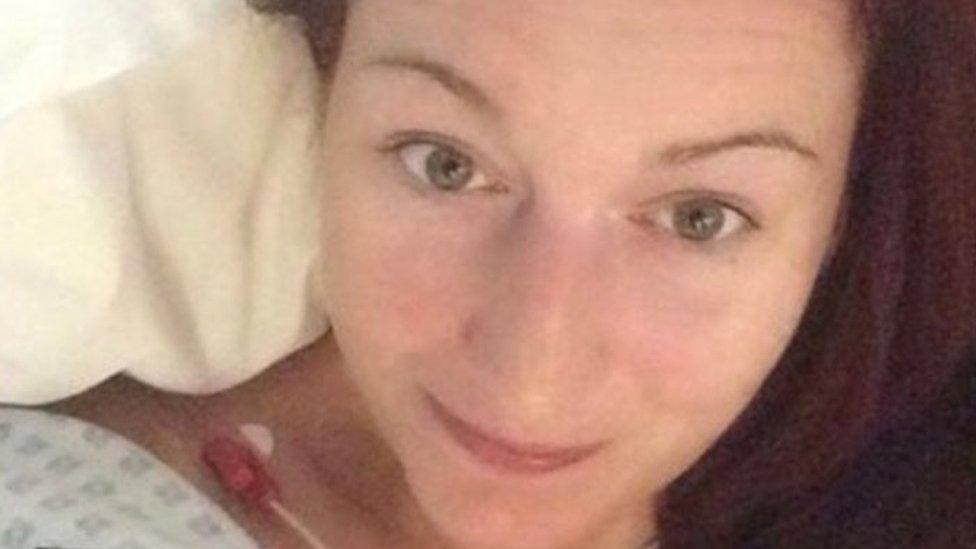'I am 22 and I want a hysterectomy'
- Published
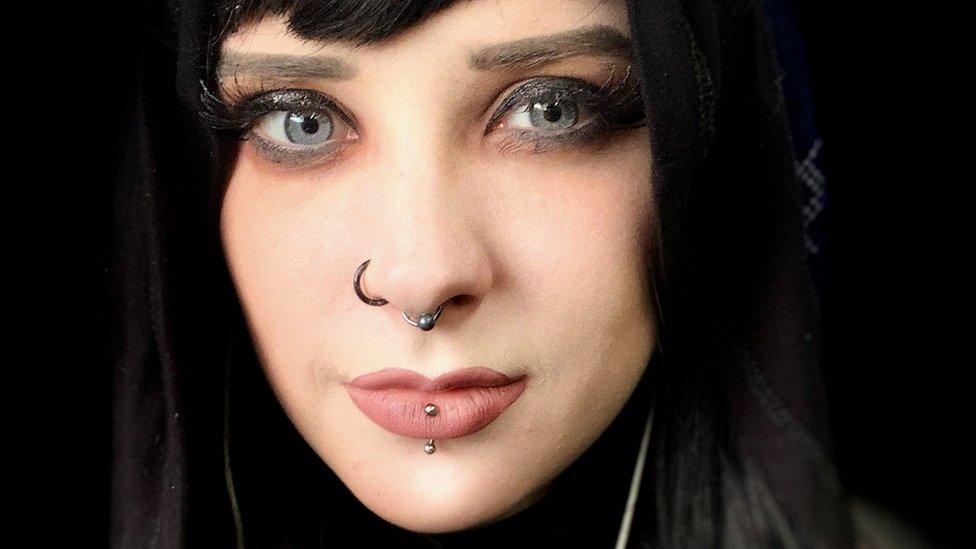
Megan says she wants to live her life free of period pain
After years of extreme, chronic period pain, 22-year-old Megan Archibald asked her doctor for an hysterectomy.
She says she was told she was too young and would not be considered until she was 35.
Megan told BBC Scotland's Mornings with Kaye Adams she has experienced unbearable period pain since her early teens.
On one occasion her period lasted for almost six months and she had to take iron tablets to counter blood loss.
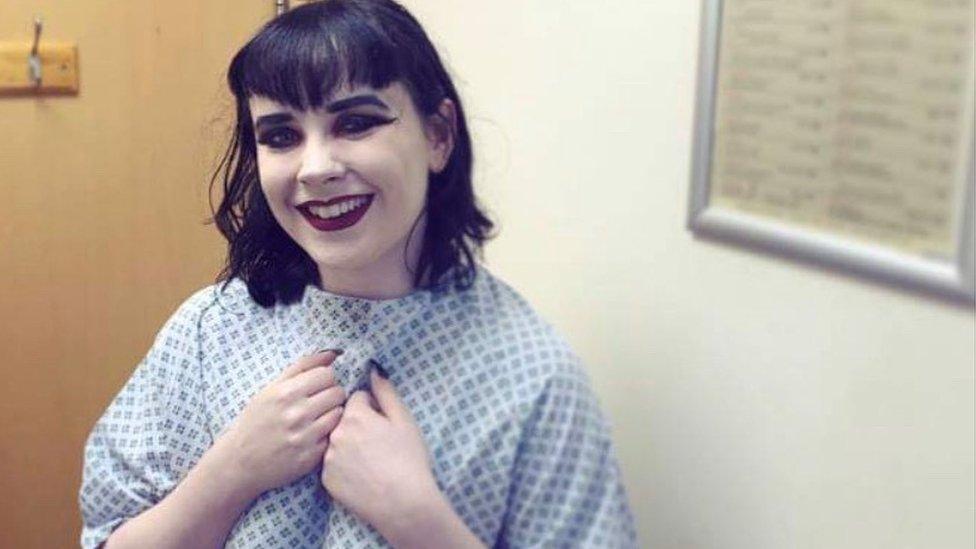
Megan says the effects of her pain have been extreme and chronic
Megan, from Livingston in West Lothian, has started a petition urging the Scottish government to review NHS guidance. , external
She says she wants to have a better quality of life even if that means she will not be able to have children.
The Edinburgh University student said the medical profession would not even enter into a conversation about her decision to have a hysterectomy, a procedure that would remove her womb.
In her petition to parliament, Megan says a woman's worth appears to based around her ability to have a child, not whether she can enjoy life free of debilitating pain and invasive examinations.
She believes women should have the right to be listened to in choices about their treatment, up to and including hysterectomies.
"This is extreme, this isn't the normal period experience that so many other women would have," she says.
"The only word I can use to describe it was agony.
"It is not being able to move from pain, vomiting, having really upset stomach and headaches. I felt like I have done some sort of boxing match. It was just horrendous.
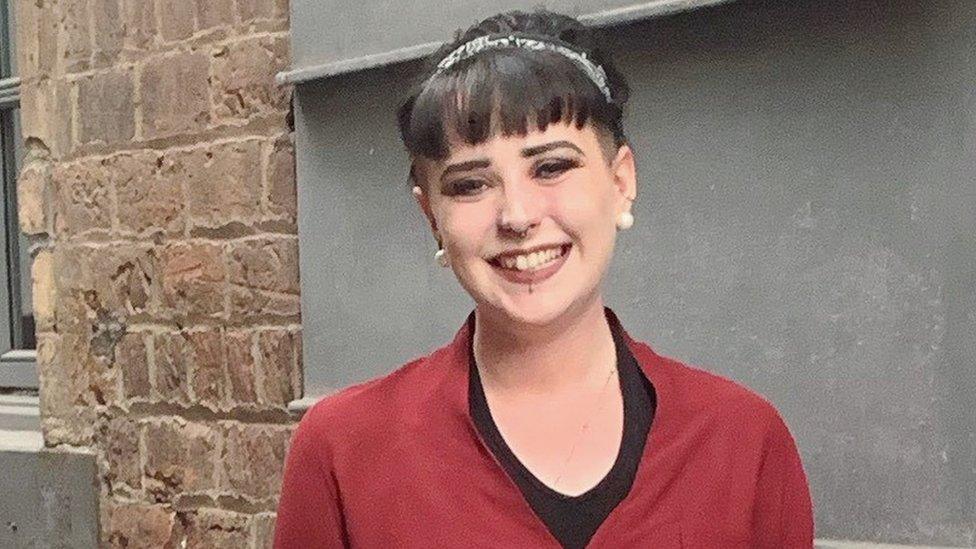
Megan has petitioned the Scottish Parliament over the NHS guidance
She says the effect on her mental health has been "really devastating".
One of the treatments for her symptoms is the contraceptive pill, which Megan was prescribed at 15.
She says: "Hormonal contraception is not always easy for a lot of women. It can be brutal. I found myself on anti-depressants and I thought this was what my mind was like.
"It was not until I got the ok from a gynaecologist to come off the hormonal contraception, it felt someone switched the lights back on."
At the start of last year, Megan says things started to derail when she had period pain and bleeding for 173 days.
"After a certain amount of time it rules everything," she says.
Most women have period pain and about 15% have pain so severe it limits their daily activities.
Long-lasting and excruciating pain can be a sign of conditions such as endometriosis but these can take years to diagnose.
Megan says she has had no diagnosis for her condition.
'No-one listening'
The Scottish Parliament Information Centre (SPICe) provided a briefing to MSPs in response to Megan's petition, which said her condition was clinically known as dysmenorrhoea.
Primary dysmenorrhoea is menstrual pain in the absence of any underlying clinical pathology.
The briefing says much of the care is aimed at alleviating symptoms via painkillers, oral contraceptive or intrauterine devices.
It says consideration of a hysterectomy as a treatment option is driven by a judgement as to whether it is medically justified.
According to SPICe, there is no nationally prescribed age restriction for undergoing a hysterectomy, although clinicians would discuss the implications of the procedure for a woman of child-bearing age.
Megan argues that she should have the right to control her fertility and should be able to request a hysterectomy.
She wants to shift away from the "doctor knows best" approach to one where a patient's personal expertise and knowledge is also valued.
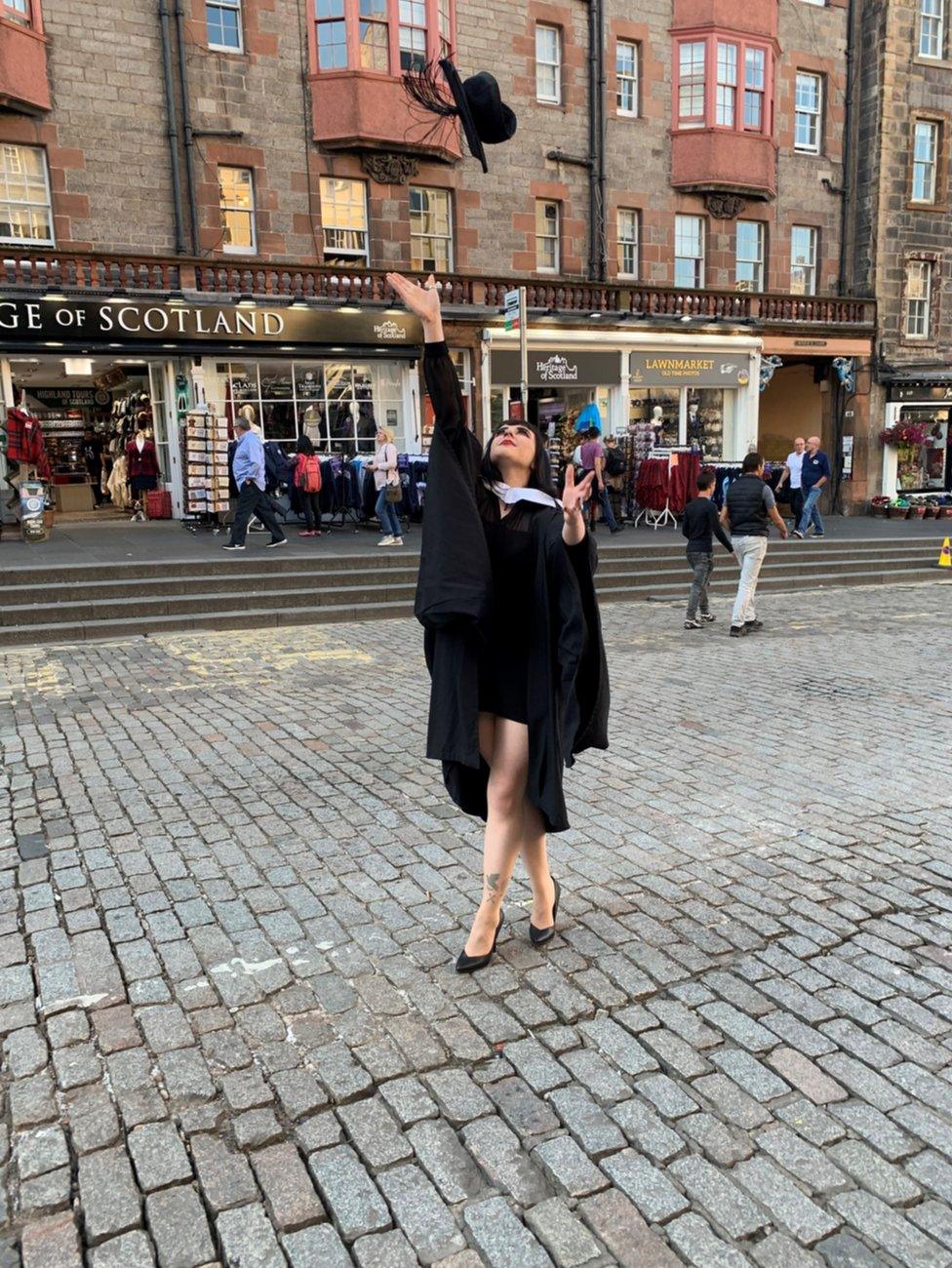
Megan said she wanted to continue studying for her Master's degree

Megan told BBC Scotland she is sure she does not want children but doctors do not believe her or say she is too young.
"The first response I remember is 'I won't do it because I wouldn't do it to my daughter'," she says.
"Then being told you might change your mind.
"It is not so much that you don't get the answer you want, it is that you don't get to have the conversation at all."
Megan feels like she has lived with the condition long enough to be able to know she does not want to continue with the pain or the treatments and their side effects.
She says: "I have heard too many people who were 35 or 40 and they had been begging since they were 20 to make this stop and no-one was listening to them.
"I want to continue my education, I want to continue working as a photographer, I want to teach and I know this condition is going to get in the way of that and that's not what I want.
"Not all women will want to be mothers and I would think we are at a stage where we would accept that but apparently we are not at point yet."
- Published5 December 2017
